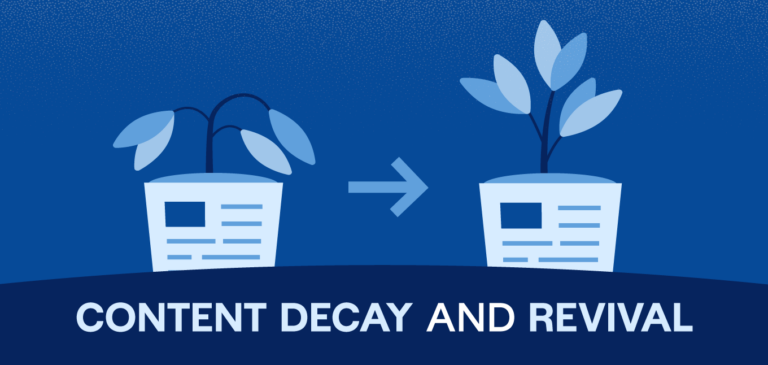As we look to a new decade, it’s time to reflect on the evolution of the gig economy and what these changes mean for freelancers. In part five, we explore the power of setting goals to ensure freelancers’ skill-sets stay competitive and in demand.
If the past decade can predict the next, it’s safe to say the years between 2020 and 2030 will see growth in the gig economy. As we have explored through research and interviews, experts and freelancers agree on the rise of competition and demand as more companies see the benefit of remote workers.
For those of us who have been balancing multiple clients for many years, and perhaps even those who are newbie writers, setting aspirational goals is smart. Not only does it keep us focused on the task at hand (ahem, a deadline) but it challenges us to think critically about the longevity of our careers. Plus: it never hurts to dream a little, and to imagine how differently our lives may look as the seasons change.
If the thought of 2030 seems lightyears away, that’s probably because in the land of freelancing, it sort of is: so much can transform in a handful of years. However, it’s often the choices you make now that impact the majority of your successes. That’s why these freelancers have dared to manifest where they hope to be in another decade.
3 savvy professionals dish on the power of setting goals

“I want to publish three books — and diversify my income streams.”
Dominique M. Carson, has been writing since the age of eight when she discovered it was a therapeutic exercise. Her decision to become a journalist was made in the fourth grade after watching ‘Teen Summit,’ a former BET television show. Fast forward to the age of 16, and she published her first article. Since graduating from university, she’s built a robust career as a reporter and content writer, and she also is a NYS licensed and national certified massage therapist.
Undoubtedly accomplished already, Carson has big goals for 2030, like becoming an award-winning wordsmith, and publishing not one but three books. Her first biography is in the works, and more ideas are brewing. She also wants to use the shift in modern economies to give a voice to alternative — and cost-effective — options for building a profession.
I want to promote trade school as an alternative option if people believe college is not suitable for them. And, I want to submit editorial content for higher education institutions, magazines, ad agencies, and massage organizations.
But in addition to penning together novels and stories, Carson is dedicated to diversifying her income streams through her passage of healing via massage. “Massage is truly an extension of nursing,” she shares. “I want people to know through my editorial platform that massage is more than just relaxation. It’s about wellness, self-care, and it’s used for medical purposes as well. It’s a complementary alternative form of medicine.”

“I will pivot into more digital content development to remain competitive.”
Once Diana Kelly Levey left college with a journalism degree, she made the big move to New York City, where she landed a gig as an editorial assistant at WeightWatchers.com. At the time, she badly wanted to work at a print publication, but looking back, was grateful for the early experience in digital publishing.
Not only did she learn how to write for brands (as opposed to publications) but it nurtured her online writing and editing career. From there she had stints at Prevention and Muscle & Fitness before making the switch to freelance in 2013.
Today, her services are plenty: content strategy, marketing writing, ghostwriting, ebook development, and even one-on-one coaching. As Levey looks ahead, she’s worried about the future of freelance rates, as the market becomes more saturated with less-experienced writers who are willing to accept low income.
If publications (or companies in general) don’t see the value in trained writers, negotiating a higher cost will be a never-ending, uphill battle. That’s why Levey predicts she’ll be doing less editorial writing in 2030, and thus, is focusing her attention on other essential skills. “That work may include digital strategy and teaching companies’ team members how to become better content writers and producers so that they can create content and develop projects in line with their brand voice.”
Levey continues:
I plan to stay on top of digital marketing trends and learn skills that will grow my clients’ audiences through the latest technology — whether that’s improving video skills, voice-assisted search, SEO, and the latest social media platforms at that time.

“I will be financially stable — and evolve with the gig economy.”
Truth be told, Maz Sandhu didn’t have a clue on what she wanted to do, except getting paid to do something creative. On a whim, she applied for a job as a social media specialist at a local agency at the age of 25, and quickly fell in love with the pace. She then moved to another company with national, high-profile clients before transitioning to an in-house role for an automobile retail brand.
But when her job description changed due to internal shifts, she decided to become a full-time freelance copywriter. While today, Sandhu says her career is still in its infancy, she’s excited about the promise of a booming gig economy, even in Great Britain where she calls home.
She doesn’t see the trend going anywhere but up, and she wants to stay at the top as it does:
I expect this will continue to grow, with new startups being launched every day. And, digital marketing is an incredibly adaptable skill; because it can be done remotely. This means the whole world is one big prospecting playground.
To stay at the forefront, she’s focused on pushing past her introverted tendencies to network and approach decision-makers at companies where she sees an opportunity. “The thought is daunting — but it seems now, more than ever, businesses are responding to inquiries and seeking talent that can help elevate their businesses. More so than that, a lot of business owners seem to favour transparency and like to know the freelancer’s story and journey.”



